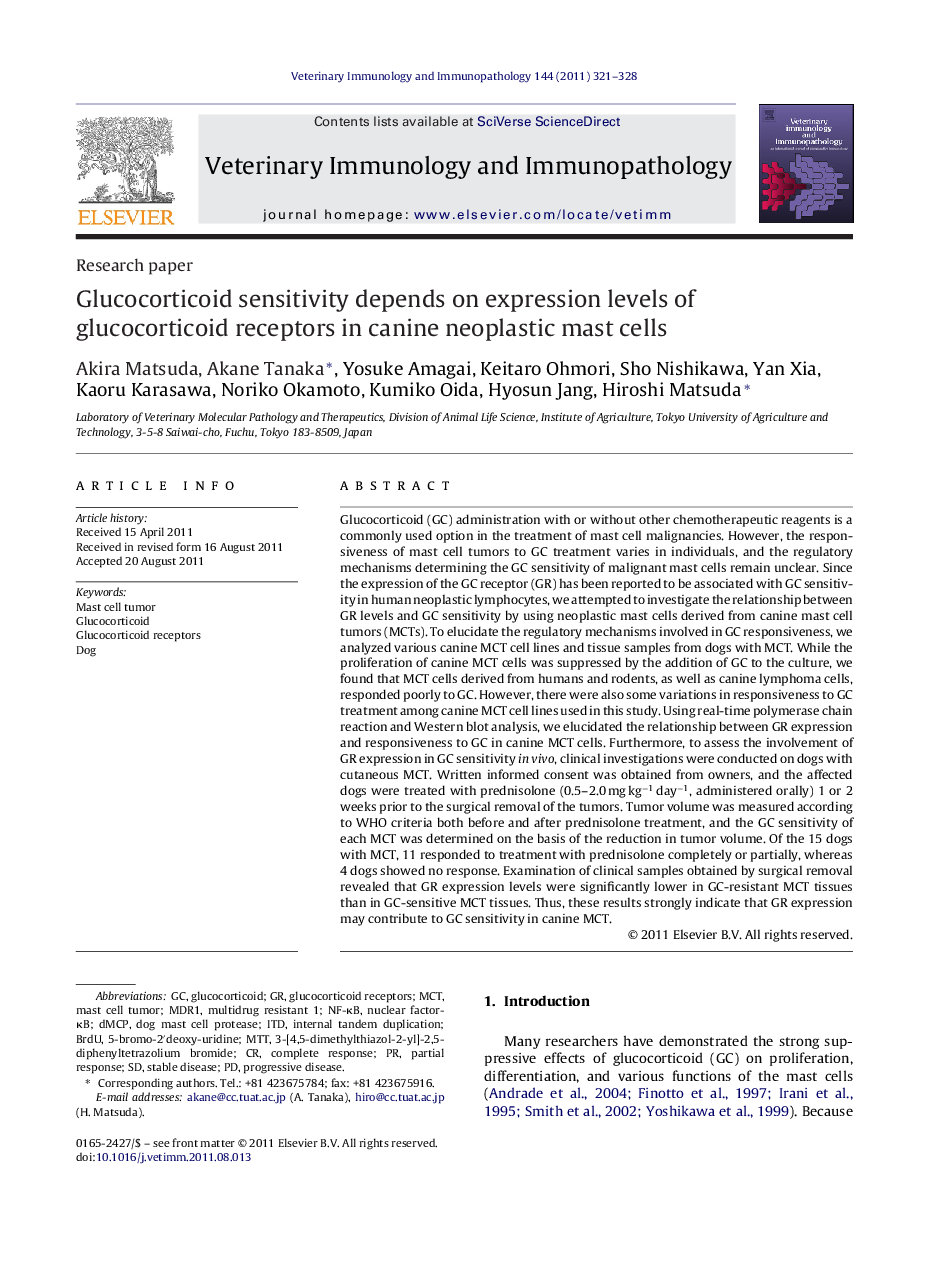| Article ID | Journal | Published Year | Pages | File Type |
|---|---|---|---|---|
| 2462010 | Veterinary Immunology and Immunopathology | 2011 | 8 Pages |
Glucocorticoid (GC) administration with or without other chemotherapeutic reagents is a commonly used option in the treatment of mast cell malignancies. However, the responsiveness of mast cell tumors to GC treatment varies in individuals, and the regulatory mechanisms determining the GC sensitivity of malignant mast cells remain unclear. Since the expression of the GC receptor (GR) has been reported to be associated with GC sensitivity in human neoplastic lymphocytes, we attempted to investigate the relationship between GR levels and GC sensitivity by using neoplastic mast cells derived from canine mast cell tumors (MCTs). To elucidate the regulatory mechanisms involved in GC responsiveness, we analyzed various canine MCT cell lines and tissue samples from dogs with MCT. While the proliferation of canine MCT cells was suppressed by the addition of GC to the culture, we found that MCT cells derived from humans and rodents, as well as canine lymphoma cells, responded poorly to GC. However, there were also some variations in responsiveness to GC treatment among canine MCT cell lines used in this study. Using real-time polymerase chain reaction and Western blot analysis, we elucidated the relationship between GR expression and responsiveness to GC in canine MCT cells. Furthermore, to assess the involvement of GR expression in GC sensitivity in vivo, clinical investigations were conducted on dogs with cutaneous MCT. Written informed consent was obtained from owners, and the affected dogs were treated with prednisolone (0.5–2.0 mg kg−1 day−1, administered orally) 1 or 2 weeks prior to the surgical removal of the tumors. Tumor volume was measured according to WHO criteria both before and after prednisolone treatment, and the GC sensitivity of each MCT was determined on the basis of the reduction in tumor volume. Of the 15 dogs with MCT, 11 responded to treatment with prednisolone completely or partially, whereas 4 dogs showed no response. Examination of clinical samples obtained by surgical removal revealed that GR expression levels were significantly lower in GC-resistant MCT tissues than in GC-sensitive MCT tissues. Thus, these results strongly indicate that GR expression may contribute to GC sensitivity in canine MCT.
